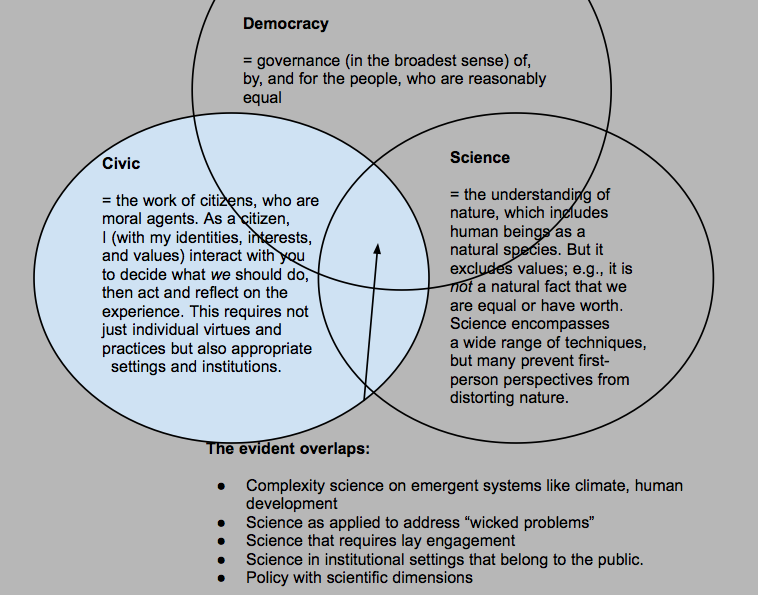- Facebook838
- Threads
- Bluesky
- Total 838
(Arlington, VA) After a day discussing Civic Science at the NSF, I am inclining to this conceptual model:

Note that none of these circles is conterminous with any other. I believe, for example, that one can be a good citizen in a context (such as a church) that is not and should not be democratic. I believe that some valuable science is not done in public or with the public, although it must be justified to the public if they are asked to pay for it. And I believe that there are worthy aspects of civic life that are not scientific. Nevertheless, the three circles overlap, and given our particularly dire problems–matters like the climate crisis–a democratic civic science must be expanded.
See also is all truth scientific truth? and is science republican (with a little r)?.
Your diagram is helpful. John Spencer, founding director of
the Delta Center, the partner of the Center for Democracy and Citizenship in
developing the concept of civic science, added the helpful comment that this
should be seen as “three dimensional,” with an axis of scale (from
the local to the grand challenges), and different tasks in different contexts.
But there is also another angle of vision, more a “movement”
than simply a set of ideals and practices.
Fred Krontz, director of the program in Science and
Technology Studies at NSF also put it very well on the panel yesterday morning:
this is a movement for democratizing science.
To elaborate a bit — civic science can be seen as a
movement to democratize science (perhaps in every form), foregrounding science’s
social, cooperative practices and values and making them more explicit –
challenging the idea that science if “value neutral; civic science is a
movement to repair the now largely forgotten but once robust scientific purpose
entwining domains: to advance democracy as well as knowledge; and civic science
is a movement which, as it incorporates civic and democratic practices into
science and the identities and practices of science, can be an immense force
for democracy’s “next stage,” sustained foundations of human agency,
civic empowerment. Harry Boyte, Director, Center for Democracy and Citizenship